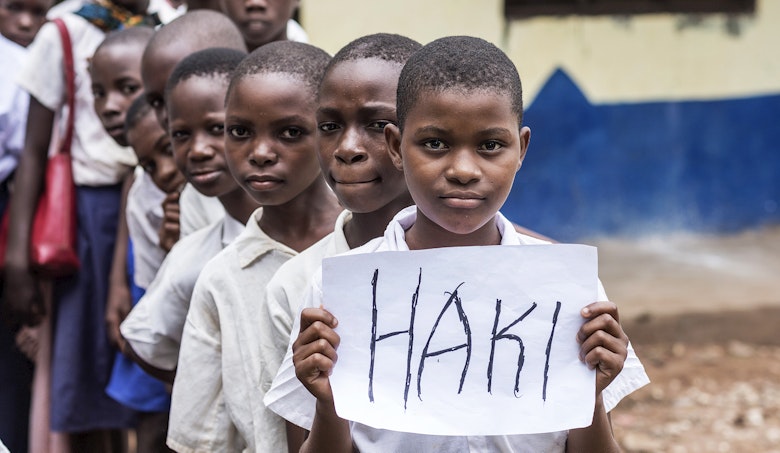Tanzania
Children in Tanzania
Many children in Tanzania experience violence, neglect and exploitation. The prevalence of child marriage remains high, many girls and boys experience sexual violence during childhood, and children and adolescents are increasingly exposed to online protection risks.
The practice of physical violence is deeply rooted in cultural beliefs and norms, and further reinforced by legal frameworks that legitimise physical discipline of children at home and in schools. Domestic violence is also generally accepted in families.
More than twice the number of girls (28%) than boys (13%) experience some form of sexual violence before turning 18. Orphans are more vulnerable to sexual and emotional abuse. 8% of children under 18 years of age are orphans.
Additionally, 36% of women (25–49 years) were married before the age of 18. This exposes young girls to the risk of violence. Close to three-quarters of 13 to 17-year-olds report having been slapped, punched, beaten or threatened with a weapon by a relative, authority figure or intimate partner. Furthermore ,a quarter of children have been called bad names, made to feel unwanted or threatened with abandonment, all of which constitute emotional abuse.
Abuse is rarely reported as the perpetrators are usually known to the abused child. Children also do not know where to go for care, treatment and support. Very few children have birth certificates, making it difficult to access social services and legal protection.
"Female genital mutilation is a violation of human rights, health, integrity and personal development of girls and women, stripping them of their childhood and excluding them from education. It cannot be justified as a cultural or traditional practice. Even if you are not directly affected, it is important we create a world where everyone has zero tolerance for FGM."
Our work in Tanzania
In Tanzania, Terre des Hommes Netherlands works with communities, government, private sector, civil society organisations and children themselves, to address systemic and structural drivers that expose children to exploitation.
Our Approach: Children at the Centre
Children are at the centre of everything we do. We support them to get access to education and other skills development so they can eventually find jobs to earn better incomes to enhance their opportunities to live a decent and dignified life. We build their resilience and facilitate their empowerment. And we help them amplify their voice, opening opportunities to speak up to those with the power to realise systemic change.
Strengthening child protection
We educate parents and communities. We build the capacity of local structures to effectively prevent, detect, report and respond to child exploitation. We collaborate with other actors to influence strengthening of the legal and policy environment for better promotion and protection of children’s rights.
Our partners in Tanzania
Together with experienced partners we are working towards a world without child exploitation, where young people can feel safe today and better about tomorrow. Join our fight.
Contact us
Business hours
Children's Stories
Trisper: Thriving in school and empowered to know her rights and pursue her dreams
Trisper*, 13 years old, suffered from polio illness resulting in disability at the tender age of 7 years. This…
Nadia's dream of becoming a teacher
Nadia (6) lives in rural Tanzania and recently started attending primary school. She is in grade three and is…

